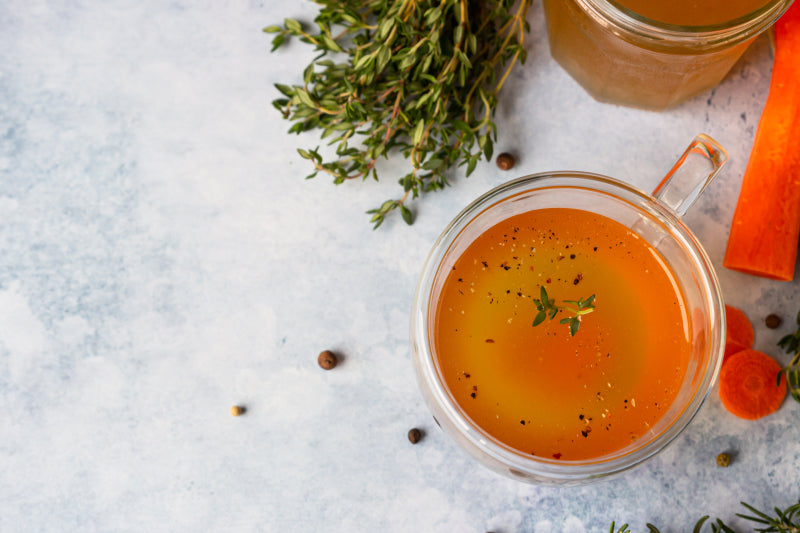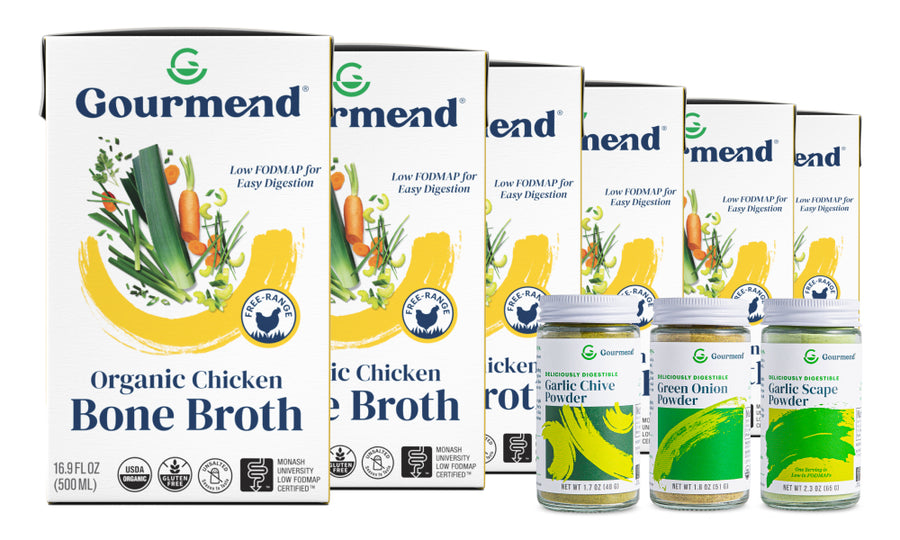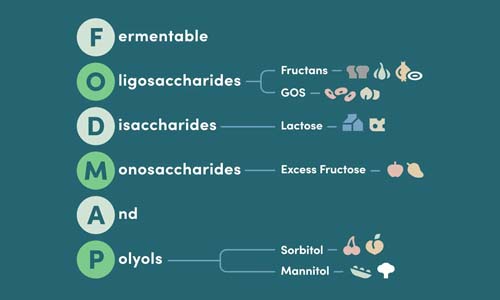Bone Broth Diet Guide 2026: Easy Gut Health Tips 🐓💚

The Bone Broth Diet: What It Is and Why It Works
The bone broth diet combines nutrient-dense bone broth with whole foods and strategic fasting to support weight loss, gut health, and overall wellness. At its core, this approach leverages the powerful nutritional profile of properly prepared bone broth—rich in collagen, amino acids, and minerals—alongside intermittent fasting and clean eating principles.
Made popular by Dr. Kellyann Petrucci, the bone broth diet typically runs for 21 days, though 7 and 14-day versions exist for those wanting a shorter commitment. The plan alternates between five days of Paleo-style eating (with daily bone broth) and two days of "mini-fasts" where you consume only bone broth throughout the day.
As someone who's experienced digestive challenges firsthand, I understand the appeal of a dietary approach that prioritizes gut health while offering other potential benefits. Let's dive into what makes this diet unique and how it might fit into your wellness journey.
The Science Behind Bone Broth's Benefits

What makes bone broth so special? It's all about what happens when you simmer bones and connective tissues for extended periods—typically 12-24 hours or longer. This slow cooking process extracts collagen, gelatin, amino acids like glycine and proline, and minerals including calcium, magnesium, and phosphorus.
These nutrients work together to support your body in multiple ways:
Gut Health Support
The gelatin and amino acids in bone broth help maintain the integrity of your intestinal lining. This is particularly valuable for those dealing with digestive discomfort or conditions like IBS. The easily digestible nutrients in bone broth give your digestive system a chance to rest while still receiving nourishment. For more detailed benefits, see Bone Broth Benefits - Cleveland Clinic.
Joint and Skin Health
The collagen and other connective tissue components extracted during the long simmering process may help support joint function and skin elasticity. While no food is a miracle cure, the building blocks for healthy connective tissue are abundant in properly prepared bone broth.
Appetite Control and Weight Management
One of the most practical benefits of bone broth for weight loss is its ability to satisfy hunger while providing relatively few calories. The protein content (typically 7-10g per cup) helps promote fullness, making it easier to maintain a calorie deficit without feeling deprived during fasting periods.
How the Bone Broth Diet Works
The bone broth diet isn't just about drinking broth—it's a structured eating plan that combines several nutritional approaches:
The Basic Framework
- 5 Days of Paleo Eating: Focus on whole, unprocessed foods including lean proteins, vegetables, fruits, nuts, and seeds. Avoid grains, dairy, legumes, sugar, and processed foods.
- 2 Days of Bone Broth Fasting: Consume only bone broth (typically 3-6 cups) throughout the day, along with water and herbal tea.
- Daily Bone Broth: Even on regular eating days, you'll consume 1-3 cups of bone broth.
This approach creates a gentle rhythm of nourishment and cleansing that supporters believe helps reset metabolism and reduce inflammation while promoting weight loss.
A Typical Day on the Bone Broth Diet
On regular eating days, your meals might look something like this:
- Breakfast: Two poached eggs with sautéed spinach cooked in olive oil, topped with avocado slices, plus a cup of bone broth
- Lunch: Large salad with mixed greens, grilled chicken, cucumber, bell peppers, and olive oil dressing
- Afternoon Snack: A cup of bone broth with a handful of nuts
- Dinner: Baked salmon with roasted brussels sprouts and sweet potato, plus a cup of bone broth
On fasting days, you'll simply consume bone broth throughout the day whenever hunger strikes, typically 5-6 cups total.
How Much Bone Broth Should You Drink Daily?
On regular eating days, aim for 1-3 cups of bone broth distributed throughout the day. On fasting days, increase this to 5-6 cups to help manage hunger and provide essential nutrients. Many people find it helpful to start the day with a cup of warm broth and have another cup between meals or before bed.
The quality of your bone broth matters significantly. True bone broth—like Gourmend's Chicken and Beef Bone Broths—is simmered for extended periods to extract maximum nutrients from the bones. Unlike regular broths or stocks, proper bone broth develops a rich, complex flavor and often gels when refrigerated due to its high collagen content.
Bone Broth Fasting: A Gentler Approach to Intermittent Fasting
broth fasting" src="https://cdn.shopify.com/s/files/1/0255/1247/6771/t/12/assets/1748931963994-bone-broth-fasting.webp?v=1748931964" style="width: auto; height: 500px;">
The fasting component of the bone broth diet is what sets it apart from standard Paleo or low-carb approaches. Unlike strict water fasting, bone broth fasting provides essential nutrients and electrolytes while still giving your digestive system a break from solid foods.
Can You Drink Bone Broth While Fasting?
This is where definitions matter. In a traditional water fast or strict intermittent fasting protocol, consuming anything with calories technically breaks the fast. However, the bone broth diet intentionally incorporates bone broth during fasting periods as a modified approach.
The theory is that bone broth provides enough nutrients to support your body while still allowing many of the benefits associated with fasting, such as reduced insulin levels and potential cellular cleanup processes (autophagy), though to a lesser degree than strict fasting.
Bone Broth Intermittent Fasting
Some practitioners combine bone broth with intermittent fasting approaches like 16:8 (16 hours fasting, 8-hour eating window). During the fasting period, they'll consume only bone broth, water, and perhaps black coffee or tea. This can be a more sustainable approach for those who find strict water fasting too challenging.
For example, you might finish dinner at 7 PM, consume only bone broth and water until 11 AM the next day, then eat your regular meals within the 11 AM to 7 PM window.
3-Day Bone Broth Fast for Weight Loss
Some people opt for a shorter but more intensive approach with a 3-day bone broth fast. During these three days, you consume only bone broth, water, and herbal teas—no solid foods. This more intensive cleanse is typically done less frequently, perhaps once every few months, rather than weekly like the standard bone broth diet protocol.
While some report significant weight loss during these short fasts, it's important to note that much of the initial weight loss comes from water and reduced food volume in the digestive tract. The sustainable fat loss benefits come from consistent implementation of the overall dietary approach.
Choosing the Right Bone Broth for Your Diet

The foundation of an effective bone broth diet is, of course, high-quality bone broth. Whether you make it at home or purchase it pre-made, certain factors determine its nutritional value:
Choosing the Right Bone Broth for Your Diet
The quality of your bone broth directly impacts the benefits you'll receive from the bone broth diet. Not all broths are created equal, and knowing what to look for makes all the difference in your results.
What Makes a True Bone Broth?
A genuine bone broth is simmered for 12-24 hours or longer to extract collagen, minerals, and amino acids from the bones and connective tissues. This extended cooking process is what distinguishes bone broth from regular broth or stock, which are typically cooked for just 2-4 hours. The result? A richer, more nutrient-dense liquid that often gels when refrigerated due to its high collagen content.
Both Gourmend's Chicken and Beef products are true bone broths, not just simple broths. They're simmered slowly to extract maximum nutrition while maintaining delicious flavor – without the digestive triggers that can cause discomfort.
Store-Bought vs. Homemade
While making bone broth at home gives you complete control over ingredients, it's also time-intensive. Store-bought options offer convenience, but quality varies dramatically. When selecting pre-made bone broth for your diet, look for:
- Organic, grass-fed, or pasture-raised animal sources
- No added preservatives, artificial flavors, or excess sodium
- Minimal ingredients (bones, vegetables, herbs, water)
- Low FODMAP certification if you have digestive sensitivities
- A rich, complex flavor that indicates proper preparation
For those with IBS or digestive sensitivities, finding a bone broth without onion and garlic can be challenging. Gourmend's bone broths use gut-friendly alternatives like chives and the green parts of leeks and scallions to create rich flavor without digestive distress.
The Bone Broth Diet Plan: Structuring Your Approach
The standard bone broth diet follows a 21-day protocol, though 7-day versions are popular for beginners. Here's how to structure your approach for maximum benefit:
The 7-Day Bone Broth Diet Plan
For those new to the concept or looking for a reset, a 7-day plan offers a manageable starting point:
- Days 1-5: Follow Paleo-style eating with 1-3 cups of bone broth daily
- Days 6-7: Bone broth mini-fasts (5-6 cups of broth throughout the day)
This shorter protocol gives you a taste of the approach without the longer commitment. Many people use this as a quarterly reset or as preparation for the full 21-day program.
The 21-Day Bone Broth Diet
- Week 1: 5 days Paleo + 2 days bone broth fasting
- Week 2: 5 days Paleo + 2 days bone broth fasting
- Week 3: 5 days Paleo + 2 days bone broth fasting
The fasting days don't need to be consecutive – many people choose to space them throughout the week (like Monday and Thursday) for better sustainability. The key is consistency with the overall approach.
Beyond 21 Days: Maintenance Phase
- Continue Paleo-style eating most days
- Include 1-2 cups of bone broth daily
- Incorporate one bone broth fasting day per week
This more sustainable long-term approach helps maintain results while allowing more flexibility in your lifestyle.
Weight Loss on the Bone Broth Diet: What to Expect

Many people turn to the bone broth diet specifically for weight management. While individual results vary based on starting weight, metabolism, and adherence, there are some common patterns:
Typical Weight Loss Results
During the 21-day program, many followers report losing between 10-15 pounds. However, this varies significantly based on starting weight, metabolic factors, and how strictly the program is followed. The initial weight loss often includes water weight, particularly as the body adjusts to lower carbohydrate intake.
The bone broth diet supports weight loss through several mechanisms:
- Calorie reduction: Both the Paleo guidelines and fasting days naturally reduce caloric intake
- Appetite regulation: The protein and gelatin in bone broth help promote fullness
- Reduced inflammation: Eliminating processed foods and potential triggers may reduce inflammatory responses that contribute to weight retention
- Improved digestion: Better gut function can reduce bloating and support overall metabolic health
Beyond the Scale: Other Benefits to Monitor
- Reduced digestive symptoms like bloating, gas, and irregularity
- Improved skin clarity and elasticity
- Better sleep quality
- Increased energy levels throughout the day
- Reduced joint discomfort
Keeping a journal during your bone broth diet can help you identify patterns and improvements beyond weight changes.
Bone Broth for Detox: Separating Fact from Fiction
The term "detox" is often overused in nutrition circles, but bone broth does offer legitimate support for your body's natural detoxification processes. Rather than "cleansing" in the extreme sense, bone broth provides nutrients that support your liver and digestive system – the organs responsible for processing and eliminating waste.
How Bone Broth Supports Natural Detoxification
- Glycine: This amino acid supports liver function and Phase II detoxification pathways
- Glutathione precursors: Bone broth contains precursors to glutathione, one of your body's master antioxidants
- Easily digestible nutrients: Giving your digestive system high-quality nutrition in an easily processed form allows energy to be directed toward repair and renewal
Rather than thinking of bone broth as a detox in itself, consider it supportive nutrition that allows your body's natural processes to function optimally.
Bone Broth Cleanse vs. Traditional Cleanses
Unlike many commercial cleanses that rely on extreme restriction or laxative effects, a bone broth cleanse provides substantial nutrition while still giving your digestive system a break from processing complex foods. This makes it more sustainable and less likely to trigger the rebound effects often seen with more extreme approaches.
The bone broth diet offers a balanced approach to wellness that goes beyond quick fixes. By combining nutrient-dense foods with strategic fasting and high-quality bone broth, you provide your body with both the nutrition it needs and the space to heal and reset.
In the next section, we'll explore how to implement the bone broth diet in real life, including practical tips, potential challenges, and how to customize the approach for your unique needs.
Implementing the Bone Broth Diet in Real Life

Taking the bone broth diet from concept to kitchen requires some practical planning. Let's explore how to make this approach work in your everyday life, address common challenges, and customize it for your unique needs.
How Much Bone Broth Should You Drink Per Day?
The optimal amount of bone broth varies depending on whether you're following a regular eating day or a fasting day:
- Regular days: 1-3 cups (8-24 oz) spread throughout the day
- Fasting days: 5-6 cups (40-48 oz) as your primary source of nutrition
Many people find success with drinking bone broth before meals to help with satiety and portion control. On fasting days, spacing your bone broth consumption every 2-3 hours helps maintain energy levels and prevent excessive hunger.
Bone Broth and Intermittent Fasting
A common question is whether bone broth breaks a fast. Technically, bone broth contains calories (typically 40-50 calories per cup), so it's not a zero-calorie option. However, many intermittent fasting approaches allow for bone broth during fasting windows because:
- It's low in calories and carbohydrates, minimizing insulin response
- The protein and fat content helps maintain muscle mass during fasting
- It provides electrolytes that support hydration and energy
If you're practicing intermittent fasting for autophagy (cellular cleanup) benefits, you might opt for water-only fasting. But for metabolic health and weight management, including bone broth during fasting periods is generally supportive and can make fasting more sustainable.
For additional information on bone broth nutrition and benefits, check out Healthline's Bone Broth Nutrition Guide.
Common Challenges and How to Overcome Them
Like any dietary approach, the bone broth diet comes with potential hurdles. Here's how to navigate the most common challenges:
Social Situations and Dining Out
Maintaining the bone broth diet during social events can be tricky. Try these strategies:
- Check restaurant menus ahead of time for Paleo-friendly options
- Eat a small meal before events where food choices might be limited
- Bring your own bone broth in a travel mug for fasting days
- Schedule social gatherings during your regular eating days when possible
Remember that perfect adherence isn't necessary for benefits. Focus on consistency rather than perfection.
Hunger and Energy Fluctuations
- Drink extra water and electrolytes to combat fatigue
- Add a pinch of sea salt to your bone broth to support electrolyte balance
- During regular eating days, ensure you're consuming enough healthy fats and protein
- Plan lighter activities on fasting days, especially when first starting
Most people find these symptoms subside after 3-5 days as the body adjusts to metabolizing fat more efficiently.
Digestive Adjustments
Changes in bowel movements are common when beginning the bone broth diet. The increased protein and reduced fiber on fasting days can temporarily affect digestion. During regular eating days, focus on fiber-rich vegetables and stay well-hydrated to support healthy elimination.
Customizing the Bone Broth Diet for Your Needs
The standard protocol provides a framework, but you can adapt it to your specific situation:
For Digestive Sensitivities
If you have IBS or other digestive issues, quality matters even more. Choose a low FODMAP bone broth like Gourmend's, which is made without onion and garlic bulbs. Instead, we use gut-friendly alternatives like chives, scallion greens, and leek tops to create rich flavor without digestive distress.
During regular eating days, follow low FODMAP guidelines for your Paleo meals to minimize triggers. The combination of intermittent fasting with low FODMAP bone broth can be particularly effective for those with sensitive digestive systems.
For Athletic Performance
Athletes may need to modify the standard approach:
- Consider limiting bone broth fasting days to once per week
- Schedule fasting days on rest or light training days
- Increase protein intake on regular eating days
- Add starchy vegetables like sweet potatoes to support glycogen replenishment
The amino acid profile in bone broth supports recovery, making it an excellent addition to an athletic nutrition plan even with these modifications.
After the Bone Broth Diet: Sustainable Long-Term Approaches
The bone broth diet isn't meant to be followed indefinitely in its strictest form. After completing your initial protocol, consider these sustainable approaches:
The 80/20 Approach
Many people find success with following Paleo guidelines and including bone broth about 80% of the time, allowing flexibility for special occasions and social events the other 20%. This balance supports continued health benefits while accommodating real-life situations.
Periodic Resets
Rather than maintaining strict protocols continuously, consider doing quarterly 7-day bone broth resets to recalibrate your system. This approach allows more flexibility while still providing regular opportunities for digestive rest and renewal.
Daily Bone Broth Habit
Even without following the full diet protocol, incorporating 1-2 cups of high-quality bone broth daily offers significant benefits. This simple habit supports gut health, provides essential nutrients, and can help maintain the improvements gained during the more intensive protocol.
Final Thoughts: Is the Bone Broth Diet Right for You?
The bone broth diet offers a structured approach to improving nutrition, supporting digestive health, and potentially managing weight. Its combination of nutrient-dense foods, quality bone broth, and intermittent fasting creates a powerful framework for many people.
However, it's not a one-size-fits-all solution. Consider your personal health goals, lifestyle factors, and any underlying health conditions when deciding if this approach is right for you. For those with specific medical concerns, consulting with a healthcare provider before starting is always wise.
Whether you embrace the full protocol or simply incorporate quality bone broth into your existing eating pattern, the nutrient density and digestive support of properly prepared bone broth can be a valuable addition to your wellness routine. By choosing high-quality options like Gourmend's organic, low FODMAP bone broths, you're providing your body with gentle, effective nutrition that supports your health from the inside out.
- For delicious meal inspiration, check out this low-fodmap beef stew recipe.
- Explore a taco spice blend that’s gentle on digestion.
- Try a creamy carrot ginger soup for a nourishing meal.
- Enjoy a comforting low-fodmap risotto dish.
- Refresh your routine with a low-fodmap tomatillo salsa for snacking or topping meals.
- For a Mediterranean twist, try this salmon niçoise salad.
- Warm up with Italian wedding soup.
- Make your next brunch special with the ultimate low-fodmap frittata.
- For a festive meal, consider this low-fodmap Thanksgiving stuffing.
- Discover a unique main with low-fodmap baccala (salt cod).
To learn more about the health benefits of bone broth, visit WebMD's Bone Broth Health Benefits.
Shop Gourmend's Best Selling Bone Broths
Discover more at Gourmend Foods Official Website.
Check out our Broth Lover Bundle
Frequently Asked Questions
Can I just drink bone broth to lose weight?
Relying only on bone broth to lose weight isn’t a balanced approach. While bone broth is low in calories and rich in nutrients that support digestion, it doesn’t provide all the essential macronutrients your body needs. For sustainable weight loss, it’s best to include a variety of whole foods alongside bone broth to nourish your body fully.
Can you lose 10 pounds in 3 days liquid diet?
Losing 10 pounds in 3 days on a liquid diet is possible but usually involves mostly water weight rather than fat loss. Such rapid weight loss is typically not sustainable or healthy long-term. A more gradual approach with nutrient-rich foods and lifestyle changes leads to lasting results and better overall health.
How does the 21-day bone broth diet work?
The 21-day bone broth diet combines drinking bone broth with clean, low FODMAP meals to support digestion and reduce bloating. Bone broth’s gentle nutrients help soothe the gut while providing protein and minerals, making it easier to manage symptoms like IBS. The goal is to foster digestive comfort and overall gut health over three weeks.
What is the 2 week bone broth diet?
The 2 week bone broth diet focuses on incorporating bone broth daily alongside nutrient-dense, low FODMAP foods for digestive support. It’s designed as a short reset to reduce inflammation and promote gut healing, emphasizing simplicity and flavor without triggering symptoms. This approach helps people feel lighter and more comfortable in their digestion.
What is the downside of bone broth?
Bone broth is generally safe and nourishing but can be high in sodium if not chosen carefully, which might be a concern for some. Also, it’s important to ensure the broth is made from quality ingredients without additives or preservatives. Overreliance on bone broth without balanced meals might limit nutrient variety needed for overall health.
Does bone broth burn belly fat?
Bone broth itself doesn’t directly burn belly fat, but it supports digestion and helps keep you full, which can aid in weight management. Its high protein content can help maintain muscle while reducing overall calorie intake. Combined with a balanced diet and active lifestyle, bone broth can be a helpful tool for a healthier body composition.





